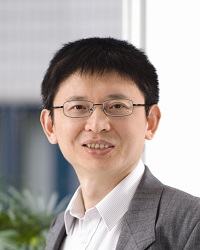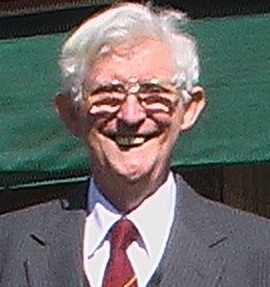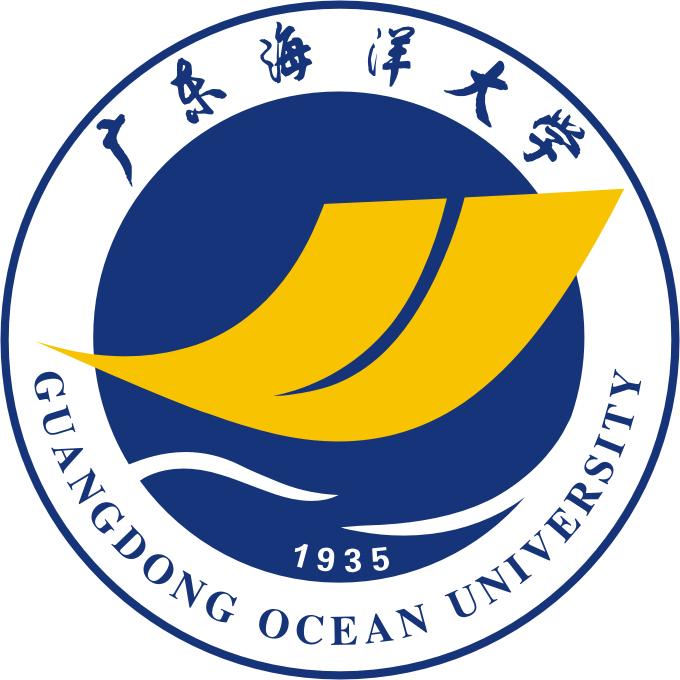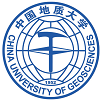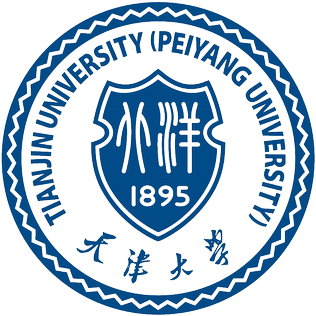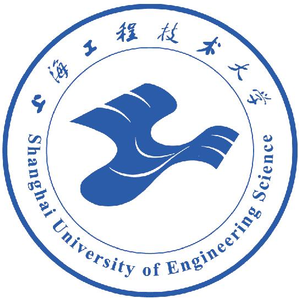Keynote Speakers

Prof. Derong Liu (IEEE / IAPR / INNS / CAA Fellow)
University of Illinois at Chicago, USA / Guangdong University of Technology, China
-
Bio: Derong Liu received the PhD degree in electrical engineering from the University of Notre Dame in 1994. He became a Full Professor of Electrical and Computer Engineering and of Computer Science at the University of Illinois at Chicago in 2006. He was selected for the “100 Talents Program” by the Chinese Academy of Sciences in 2008, and he served as the Associate Director of The State Key Laboratory of Management and Control for Complex Systems at the Institute of Automation, from 2010 to 2015. He is now a professor at Guangdong University of Technology, China. He has published 19 books. He is the Editor-in-Chief of Artificial Intelligence Review (Springer). He was the Editor-in-Chief of the IEEE Transactions on Neural Networks and Learning Systems from 2010 to 2105. He is a Fellow of the IEEE, a Fellow of the International Neural Network Society, and a Fellow of the International Association of Pattern Recognition.
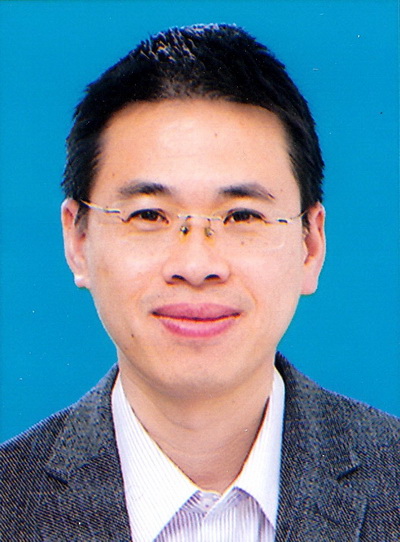
Prof. Junzhi Yu (IEEE Fellow)
Peking University, China
-
Bio: Junzhi Yu, Boya Distinguished Professor of Peking University, IEEE Fellow, Humboldt Research Fellowship (2009), “National Distinguished Young Scholars” Award from National Science Foundation of China (2017), and Ten Thousand Talents Program (2019). He has published more than 100 papers in international journals and conferences, including more than 60 papers in IEEE Transactions. Dr. Yu serves/served as associate editors of IEEE Transactions on Robotics, IEEE/ASME Transactions on Mechatronics, Bioinspiration & Biomimetics, Journal of Bionic Engineering, etc. His research interests include intelligent robots, mechatronics, and computational intelligence.
-
Title: Bioinspired Underwater Robots and Visual Environment Perception -
Abstract: Bionic robotic fish, inspired by fish in nature, have drawn much attention in the last two decades. As an excellent research and experimental platform, robotic fish not only plays an important role in helping biologists to investigate the kinematic mechanism and hydrodynamic analyses, but also is employed by engineers to explore practical, effective and flexible propulsive mechanisms since natural fish have such surprised swimming skills characterized by high effectiveness, high maneuverability, and low noise. In this talk, I will emphatically elaborate the analysis and control for high-efficiency and high-maneuverability motion of the robotic fish and robotic dolphin. Then, some efforts to acquire underwater visual environment information are introduced for the purpose of efficient delicate grasping. At last, future directions of research related to this work will also be discussed.
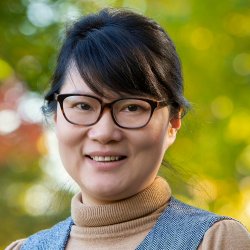
Prof. Yang Gao (FIET, FRAeS, SMIEEE, FHEA)
University of Surrey, UK
-
Bio: Professor Yang Gao is the Professor of Space Autonomous Systems at Surrey Space Centre and heads the STAR LAB that specializes in robotic sensing, perception, visual GNC and biomimetic mechanisms for industrial applications in the extreme environments. She brings nearly 20 years of research experience in developing robotics and autonomous systems, in which she has been Principle Investigator of inter/nationally teamed projects funded by UK Research Innovation (EPSRC/STFC/InnovateUK), Royal Academy of Engineering, European Commission, European Space Agency (ESA), UK Space Agency, as well as industry like BT, Airbus, Neptec, Sellafield and OHB. Yang is also actively involved in design and development of real-world space missions including ESA ExoMars, Proba3 and VMMO (lunar ice mapper), UK MoonLITE/Moonraker, and CNSA Chang'E3. In recent years, Yang's work has also been applied to several non-space sectors including nuclear, oil/gas and agriculture.
Yang is the elected Fellow of Institute of Engineering and Technology (IET) and Royal Aeronautical Society (RAeS). She had been named by the Times Higher Education as one of ten young leading academics in the UK who are making a very significant contribution to their disciplines in 2008, and also been awarded the Mulan Award for Contributions to Science, Technology and Engineering in 2019. Research work under her leadership and supervision has received many international recognition, including International Astronautical Federation (IAF) 3AF Edmond Brun Silver Medal in 2013, COSPAR Outstanding Paper Award in 2016, UKSEDS Lunar Rover Competition First Prize in 2017, joint Winner of ESA SysNova Challenge on Lunar CubeSat Exploration 2018, IEEE/ASME AIM Best Paper Award Finalist 2019, Top 3 place worldwide in ESA/Stanford Pose Estimation Challenge 2019, and First Prize of Wiley Poster Award at IEEE ICRA 2020 Space Workshop. (More)
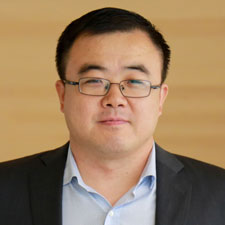
Assoc. Prof. Xinyu Liu (FASME, FCSME )
Percy Edward Hart Professor, University of Toronto, Canada
-
Bio: Xinyu Liu is an Associate Professor in the Department of Mechanical and Industrial Engineering. Prior to joining the University of Toronto, he was an Associate Professor and the Canada Research Chair in Microfluidics and BioMEMS (tier II) in the Department of Mechanical Engineering at McGill University. He obtained his B.Eng. and M.Eng. from Harbin Institute of Technology in 2002 and 2004, respectively, and his Ph.D. from the University of Toronto in 2009, all in Mechanical Engineering. He then completed an NSERC Postdoctoral Fellowship in the Department of Chemistry and Chemical Biology at Harvard University in 2009–2011.
Xinyu’s research interests are at the interfaces of microfluidics, bioMEMS (bio-microelectromechanical systems), and robotics. His research group is developing integrated micro/nanodevices and systems to target a variety of exciting applications in biology, medicine, and environment. Applications of their recent technologies include point-of-care diagnostics, large-scale gene screening, neural basis of behaviour, high-throughput drug screening, and environmental pollution monitoring.
He received the 2012 Rising Star in Global Health Award from Grand Challenge Canada, the 2012 Douglas R. Colton Metal for Research Excellence from CMC Microsystems, the 2013 Award of Excellence for Basic Science Research from the McGill Surgery Department, the 2017 Christophe Pierre Award for Research Excellence (Early Career) from McGill Faculty of Engineering, and seven Best Paper Awards at major engineering and biomedical conferences.
Xinyu is an Associate Editor of IEEE Transactions on Automation Science and Engineering, IEEE Robotics & Automation Letters, and the International Journal of Advanced Robotic Systems. He also served on editorial boards of the three major international conferences (ICRA, IROS, and CASE) of the IEEE Robotics and Automation Society (RAS), and serves on the Steering Committee of the International Conference on Manipulation, Automation and Robotics at the Small Scales (MARSS).
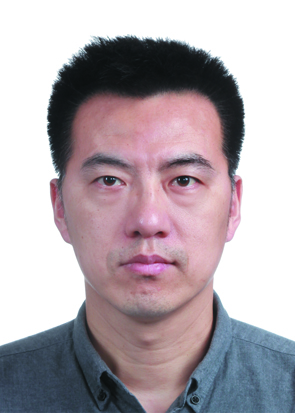
Prof. Wenxue Wang
Shenyang Institute of Automation, CAS, China
-
Bio: Dr. Wang is a professor and PhD supervisor at Shenyang Institute of Automation, Chinese Academy of Sciences. He received the B.Sc. degree in automatic control from the Beijing Institute of Technology, Beijing, China, the M.Sc. degree in control theory from the Institute of Systems Science, Chinese Academy of Sciences, Beijing, and the D.Sc. degree in systems science and mathematics from Washington University in Saint Louis, St. Louis, MO, USA, in 1996, 1999, and 2006, respectively. Then he worded as post-doctoral research associates in Texas Tech University and University of California Santa Barbara before he joined Shenyang Institute of Automation, Chinese Academy of Sciences in 2012. He is currently a Professor at Shenyang Institute of Automation and Institutes for Robotics and Intelligent Manufacturing, Chinese Academy of Sciences. His current research mainly focuses on microbotics, biosyncretic robot, intelligent control, compressive sensing, Machine Learning, and computational neuroscience and systems biology.
Past ICMRA Speakers
|
|
|
|
|---|---|---|
Prof. Wei RenIEEE Fellow, University of California, USA |
Prof. Gang FengIEEE Fellow, City University of Hong Kong, China |
Prof. John BillingsleyIET Fellow, University of Southern Queensland, Australia |
 |
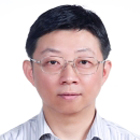 |
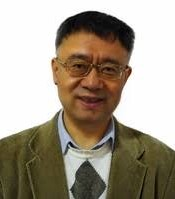 |
|
Prof. Jia-Yush YenNational Taiwan University, Taiwan |
Prof. Ji WangNingbo University, China |

